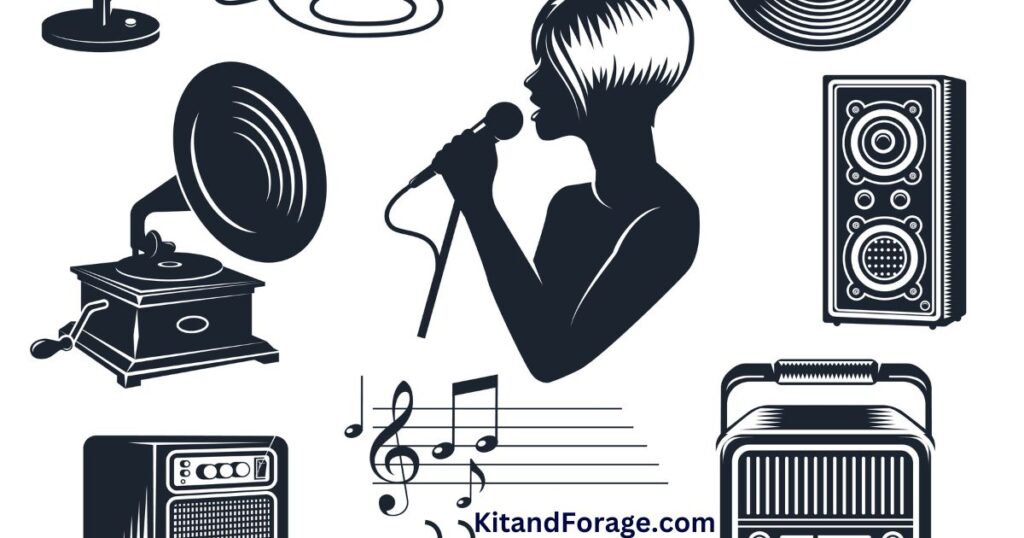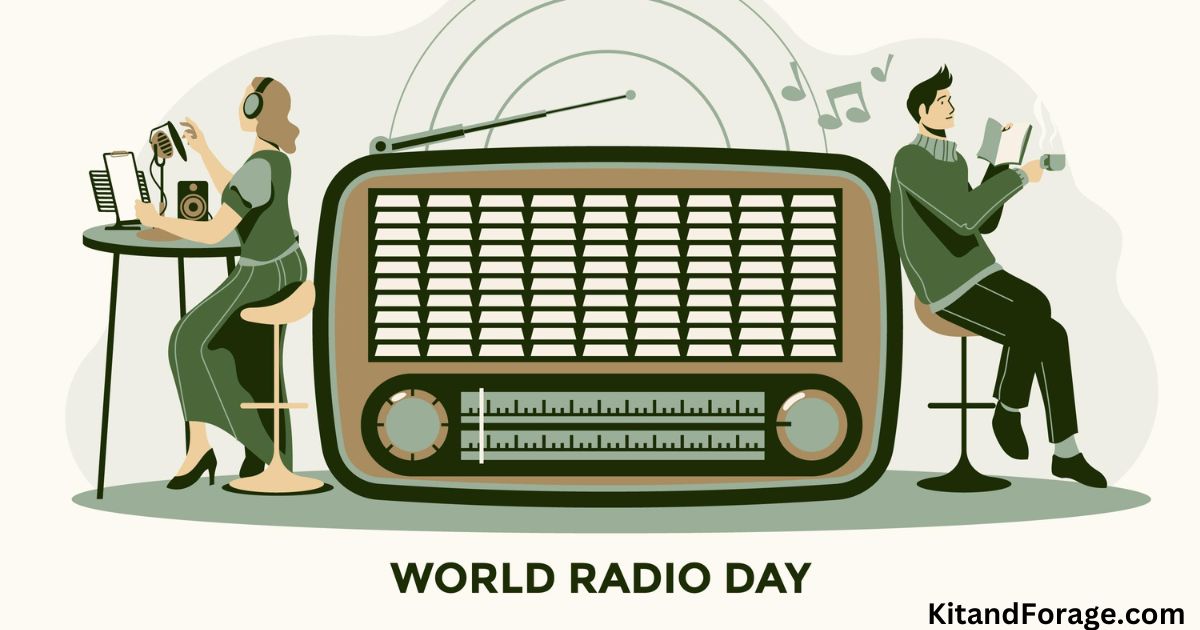It is an old way of communicating that has become an important part of our lives. Its importance has been felt throughout history and is still felt today. It is still relevant today because it offers a unique mix of speed, ease, and connection. Radio continues to fascinate people all over the world as a way to get news, have fun, and get involved in their communities. it is still an important part of life because it can bring you real-time news, different kinds of stories, and a sense of community. It can also adapt to the changing needs and tastes of its listeners while keeping up with changes in technology.
Even though new media and technology are becoming more popular, it is still important for many reasons. Here are fifteen reasons why radio is important:
15 Benefits why Radio is important In Today’s World
It can be helpful in many ways; it’s a way to talk to each other and stay up to date. It’s fun to do in your spare time and helps you learn. Community service messages about school events, concerts, shows, parades, and other public events can also be heard on the radio in your area. Now we will discuss the benefit why it is still important.
1. Radio is Easy access:
Radio is easy to get to because it is simple and doesn’t need an internet link. It gets to places that might not have access to other types of information. With a simple antenna, users can easily tune in to many stations, providing a wide range of material without having to rely on the internet. This is true whether they are in their car, on the go, or at home.
2. Value for money:
This is a cheap tool because it saves money for both users and producers. It doesn’t need a lot of money or equipment and offers a lot of material, fun, news, and information at a price that most people can pay.
3. Radio provide Information in real time:
It gives you news updates, weather reports, traffic updates, and emergency messages all in real time, which makes it a very useful tool in times of trouble. With writers on the ground and direct feeds, it quickly spreads information, making sure that viewers get the most recent news on a wide range of themes.
4. Radio Provides Entertainment:
It has many types of shows that can be fun, such as music, talk shows, comedies, plays, sports comments, and interviews. so it can appeal to a wide range of tastes and interests, keeping viewers interested with interesting stories, discovering new music, lively talks, and live events. This makes it an enjoyable and easy-to-access form of entertainment.
5. Radio provide Link to the Community:
Local radio stations build community by focusing on local news, events, and problems. This makes viewers feel like they belong. As a voice for the community, it promotes local culture, brings attention to problems, and gets people involved through call-ins, interviews, and news of neighborhood events, which makes community ties stronger.
6. Imagination and being creative:
it sparks imaginations with colourful stories, sound effects, and stories that take you into the world of the story. Listeners are encouraged to make mental pictures, imagine situations, and be creative by depending on sounds. Because there are no visible cues, there are many possible readings, which makes the experience rich and creative for each viewer.
7. Radio is Being portable:
Radios are small and light, so you can take them with you anywhere and use them to stay connected and have fun while traveling or doing everyday things. It makes it easy for people to carry their radios with them, so they can always listen to a variety of stations without having to be in one place or plug them in.
8. A place for new artists to show their work:
Radio helps spread the word about new songs and up-and-coming acts by giving them airplay that can help their careers take off.
Radio stations help new artists get known in the business by playing their music and interviewing them. Radio creates a lively environment that supports creation and music discovery by showcasing both new and well-known acts.

9. Radio Keep the language alive:
It is very important for language protection because it broadcasts in many languages. It helps keep different languages alive, which is good for cultural history. It protects and supports less popular languages through programmes, songs, and talks. This makes sure that they will continue to be spoken and gives communities a way to enjoy and protect their cultural heritage.
10. Radio help in Education:
To learn through radio, you have to listen to educational shows that cover a wide range of topics. It has talks, conversations, and useful information on history, science, languages, and other topics. The easy-to-use structure of radio lets users take in information while doing other things, which encourages ongoing learning and knowledge gain.it can be used as a teaching tool since many people can watch them.
11. Radio Supporting good causes:
Campaigns and programs on the radio help good causes by making people aware of them. It makes people who want social change, organizations, and community projects heard. Through talks, interviews, and commercials, radio gets people to support causes by pushing them to take part and donate, which has a good effect on society and social welfare.
12. Radio has Ability to adapt:
Being able to respond to new technologies is something that radio does. It works with digital systems like podcasts, web viewing, and interactive material without any problems. It changes its content, forms, and delivery methods to keep up with changing user tastes. This keeps it relevant in the digital age while keeping its main strengths of being easy to access and quick to deliver.
13. Medium for Instant Response:
Radio lets people respond right away through live exchanges like call-ins and crowd input. Listeners take part in talks happening right now, giving their thoughts, questions, or feedback. This one-on-one contact makes people instantly interested, starting a conversation between listeners and presenters that makes radio a living, changing medium.
14. Radio can alert of emergency:
Radio is still a good way to get information during situations and natural disasters when other ways of communicating might not work.
Radio is an important emergency signal method because it quickly sends out important information during emergencies. It sends alerts, directions on how to evacuate, and news to a lot of people, even if they can’t connect to the internet. Radio is very important for keeping people safe and aware during situations because it can reach a lot of people and report in seconds.
15. Radio does Little damage to the environment:
Radio doesn’t have as much effect on the world as some other types of media because it doesn’t use a lot of energy. During production and gearbox, it uses less energy and makes fewer pollutants. Radios use very little power, compared to gadgets that need to be charged all the time. This helps lower their carbon footprint, making them an eco-friendly and long-lasting way to communicate.
Why is the antenna’s height important for a VHF radio?

There are several important reasons why the height of a VHF (Very High Frequency) antenna is so important:
1) Signal Range:
Antenna height changes the signal range and covering area. Most of the time, the broadcast range gets better as the antenna gets higher. Antennas that are higher can send and receive messages farther than antennas that are lower.
2. Line of Sight:
Ordinary VHF radio waves move along a line of sight. When the antenna is higher, there is a better chance that the line of sight between the sending and receiving antennas will not be blocked by things like buildings, trees, or the ground.
3. Signal Quality:
Signal quality is affected by height. Signals that come from higher stations are often better and stronger, and they are less likely to be messed up by electromagnetic interference or barriers.
4. Antenna Radiation Pattern:
Signals from antennas are sent out in certain patterns. The antenna’s radiation pattern is changed by its height, which changes the form and direction of the messages it sends. With taller antennas, the broadcast pattern can be changed to reach more places.
5. Lessening Multipath Interference:
Signal echoes and refractions, which happen when signals hit things like buildings and mountains, can cause multipath interference. Using antennas that are higher can lessen this. Higher antennas can cut down on these echoes, which makes it easier to receive signals.
Efficiency:
Signal transfer and receiving are usually more efficient when the antenna is bigger, which improves total performance.
To sum up, a VHF radio antenna’s height has a big effect on its signal range, quality, and how well it sends and receives messages. Getting the antenna’s height just right is important for getting the best performance and consistent contact over longer distances.
Conclusion:
Radio is an easy-to-use tool that can help any business, no matter how big or small. It can reach a lot of people, no matter where they live or what they look like. its not only keeps people interested, but it also brings in money for both presenters and advertising.
Radio is still a great way to get fun, knowledge, and just make your life easier, even though TV and the internet have taken over in recent years.
All of these reasons show that radio is still important and useful as a tool that can be used for many things and reach many people around the world.



